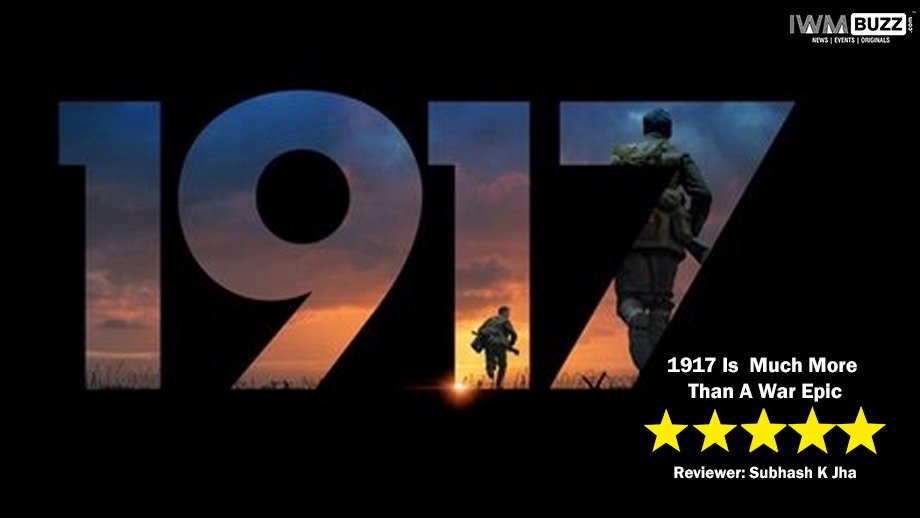1917
Starring George MacKay, Dean-Charles Chapman
Directed by Sam Mendes
Rating: *****(5 stars)
At the end of Sam Mendes’ 1917, I heard someone sobbing. I realized it was me. After spending two hours in the trenches with two of the bravest heroes ever seen, boys who should be out in a pub rather than defending Britain against Germany, I realized that the only good thing that comes from the act of war is a masterpiece of cinema like 1917.
To label 1917 an epic masterpiece is a gross understatement. For two agonizing immersive hours, the film puts you on the war front with two achingly young and earnest British soldiers, Will Schofield (George Mackay) and Tim Blake (Dean-Charles Chapman), as they trudge along the punishing route to inform an endangered battalion to call off their proposed attack against the Germans that could kill 1600 soldiers.
The camera has never been a bigger ally for the allied forces. Roger Deakins’ restless camera trails our two heroes through their traumatic journey, with a diligence and concentration that make it impossible for us to not get involved and submerged in a journey that takes them through treacherous bunkers, grim greenery and menacing slush. It is impossible for the audience to sit comfortably with the popcorn in the theatre, taking in the trauma aloofly.
Director Sam Mendes, constructing a battle arc that is clearly rooted in real harrowing facts, plunges into the lives of the two painfully callow heroes, to the point where we are filled with loathing for the whole process of war politics. In fact I’d strongly recommend 1917 for all war-mongers in Hindustan who want a combat with Pakistan.
At one point, a senior officer (Colin Firth in a cameo) counsels Schofield, who now plods his way with the crucial message on the battlefront to stop all battle activities, to make sure there are witnesses around when he conveys the message, “Because some officers just want war.”
This film does not really afford us the luxury of getting to know the protagonists intimately. They barely get a chance to speak to each other. But when one of them dies, we feel the loss as intensely as the protagonist who lives. The intense immersive power of 1917 comes from its brutal dismissal of sentimentality. There is only one female character in the film, and she appears in a sequence of splendid sublimity. And towards the end, when Schofield, on the brink of complete collapse, reaches a forest where a British soldier sings a haunting song about going home to one’s mother and father for his comrades, I couldn’t stop the sobs.
For a very long time, the two heroes are seen running in what seems like one long unbroken shot. Mendes apparently shot the entire film in one take. I would find that hard to believe about any other film. 1917 aspires to achieve an impossible fusion of war-time frenzy and inter-personal grief, and succeeds beyond all expectations.
This is not an easy film to sit through. It sucks you into the protagonists’ journey with a visual and emotional power that very few films have displayed, let alone possessed in recent or even remote times. Much more than a war epic, this is quite simply one of the best films ever made. The other Oscar-nominated films this year simply pale in comparison. Just hand over the damn thing to 1917 and Mendes.
The sheer immediacy that director Mendes has achieved in the narrative is like a hard punch in the solar plexus. Layering the inherent brutality of those war-torn times with organic episodes of tenderness that never seem imposed, this film takes us on a journey that we can’t forget.
Or forgive.


